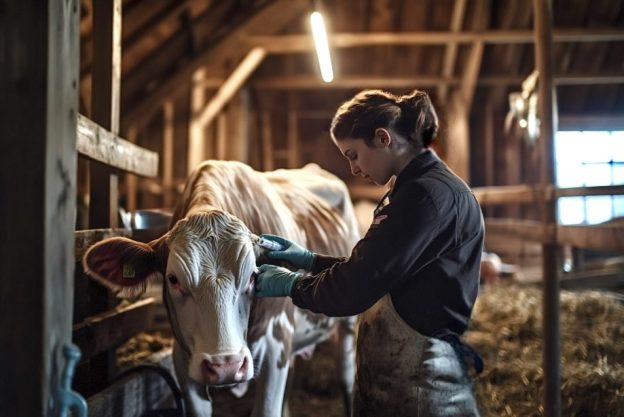Farmers need to be proactive when they keep animals. The goal should be to reduce reliance on things like wormer, using them as a last resort. This ensures the treatments remain as effective as possible. Earlier this year there was a reminder that routine worming was not a reliable method of tackling lungworm in cattle. Instead, the better option is to be proactive.
Why is lungworm such a problem?
The parasite Dictyocaulus viviparus can cause huge issues for cattle. Primarily, it causes respiratory problems, including coughing and diseases. In fact, people often refer to it as husk or hack because a dry cough is the most common symptom. Ultimately, the damage to the lungs and breathing issues, as well as infections like pneumonia, can lead to animal losses.
As well as the risk of animal deaths, lungworm can have a big impact on productivity. Dairy farmers need to be careful because it can reduce milk production. Beef farmers must be wary too, as it can reduce weight gain or even cause cattle to lose mass.
Routine use
The warning about not using wormer routinely to treat lungworm comes after signs that overuse can have a negative impact on the effectiveness. Crucially, there have been instances of animals still suffering from it even after treatment. That means the Dictyocaulus viviparus parasite is developing a resistance.
In addition, there is data to show that lungworm has become more common, with cases booming since the 90s. Scotland and Northern England have seen the biggest increase in infestations. However, there is a rick all across the UK.
Proactive treatment
Instead of relying on wormer, farmers were urged to look at alternatives. One option vets recommend is vaccination, especially for young animals before turnout. Research shows it can reduce the need for wormers by a massive 90%.
Another recommendation is to focus on best practice for pasture and grazing management. Cattle ingest Dictyocaulus viviparus larvae when they graze. So, it is a really good idea to check the condition of pastures before allowing animals on them. Then, it is wise to move animals regularly, reducing the chance of them ingesting grass contaminated with larvae in dung. Good stockmanship is important too; packing too many animals on to a pasture increases the chance of an outbreak.
Talk to us about wormer
The most important thing is to keep in mind that there are only a few types of wormers available. Using them too frequently can cause resistance and make them ineffective. This is the worst scenario as experts say there are unlikely to be new types available in the near future. It is vital to avoid a situation where resistant Dictyocaulus viviparus are everywhere.
JS Hubbuck Ltd has been giving farmers outstanding services and top quality products for generations. Most importantly, we strive to offer the best support we can, especially when it comes to things like wormer and animal health. It can provide fantastic results, including healthier, more productive animals.
So, if you need details about wormers or want to order any, please get in touch.

